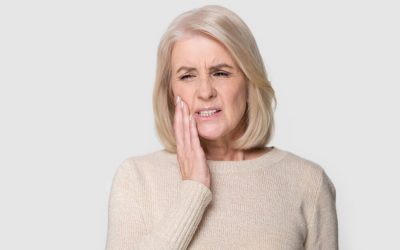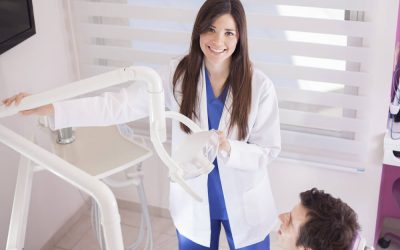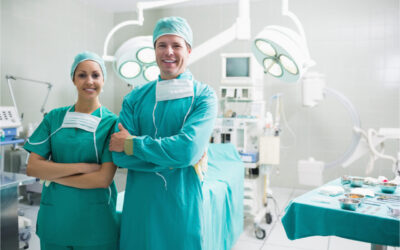Tooth extraction can be a daunting procedure, and during recovery, many people wonder about their daily routines, especially when it comes to enjoying their favorite beverages. One of the most common questions asked is, “Can I drink coffee after tooth extraction?” After all, coffee is a beloved beverage for many, and the thought of giving it up for an extended period can feel difficult. But as with any medical procedure, it’s essential to consider your recovery process and follow the advice of your dentist or oral surgeon to ensure proper healing.
This blog will explore whether drinking coffee after a tooth extraction is safe, the best practices during recovery, and how you can gradually reintroduce coffee into your routine.
Understanding the Healing Process After Tooth Extraction
The extraction site needs time to heal when a tooth is pulled, whether a wisdom tooth or another tooth. This healing process is critical for ensuring that the blood clot forms properly. The blood clot protects the underlying bone and nerve endings while preventing excessive bleeding.
The first few days after tooth extraction are crucial. During this time, it’s best to avoid anything that could disrupt the blood clot, such as sucking, spitting, or consuming certain foods and drinks. A blood clot disturbed or dislodged could lead to a painful condition called a dry socket, which slows the healing process and causes considerable pain.
Can I Drink Coffee After Tooth Extraction?
The simple answer is yes, you can drink coffee after tooth extraction—but it comes with some conditions. Here’s what you need to know:
1. Avoid Hot Coffee and Hot Beverages Immediately After Surgery
While coffee is a safe option after tooth removal, drinking hot coffee or any hot drinks should be avoided in the first 24 to 48 hours. The reason for this is simple: heat can interfere with blood clot formation and potentially disrupt the healing process. Drinking hot liquids can cause your blood vessels to expand, which might result in excessive bleeding and interfere with the clotting process.
Therefore, it’s best to steer clear of hot coffee during the early stages of recovery. Hot beverages like tea, soups, or any drink that might feel too warm are generally advised to avoid, as they could slow down the healing and recovery process.
2. Iced Coffee and Cold Drinks: A Better Choice
 If you’re craving coffee soon after the procedure, iced coffee or cold drinks are much safer. Cold drinks are less likely to affect the blood clot forming at the extraction site. Not only will this help you avoid potential issues like dry sockets, but it can also relieve any swelling and discomfort.
If you’re craving coffee soon after the procedure, iced coffee or cold drinks are much safer. Cold drinks are less likely to affect the blood clot forming at the extraction site. Not only will this help you avoid potential issues like dry sockets, but it can also relieve any swelling and discomfort.
Drinking cold liquids may even soothe the pain by numbing the area slightly. However, it’s important to be cautious with ice-cold coffee, as extremely cold temperatures may cause some discomfort or sensitivity in the extraction site. But generally speaking, iced coffee is better than hot coffee during your first few days of recovery.
3. Gradually Reintroduce Hot Coffee
As your recovery progresses, you can gradually reintroduce coffee into your routine. Typically, you can start drinking hot coffee again after about one week, but this depends on how quickly your body heals and how you feel. It’s best to wait for the advice of your dentist or oral surgeon before resuming your regular coffee habits.
If your recovery goes smoothly, you can slowly start drinking hot coffee again. However, avoid drinking coffee after tooth extraction if you’re still experiencing severe pain or swelling.
What About Other Factors That Could Affect Your Recovery?
Besides coffee, there are other considerations you must remember while recovering from a tooth extraction. These factors are important in ensuring a smooth recovery and preventing complications.
1. Stay Hydrated
Drinking plenty of water is essential during the healing process. Staying hydrated helps your body function properly and supports the extraction site’s healing. While coffee is fine in moderation, it’s crucial not to replace water with coffee entirely. Dehydration can delay healing, so drink plenty of water alongside your coffee.
2. Soft and Bland Foods
In the days following a tooth extraction, it’s important to consume soft foods like mashed potatoes, cottage cheese, or soups. These foods are easy to eat without putting pressure on the extraction site. Avoid hard, crunchy, or spicy foods that could irritate the area and disrupt the healing process.
3. Avoid Smoking and Tobacco Use
Tobacco use can significantly hinder your healing and recovery process after tooth removal. The nicotine can impair blood flow to the extraction site, making it harder for your body to heal properly. Smoking can also increase the risk of dry sockets. To ensure proper healing, it’s best to avoid tobacco products during your recovery.
4. Follow Your Dentist’s Instructions
Your dentist’s advice should be your primary guide during recovery. If your dentist specifically instructs you to avoid drinking coffee after tooth extraction, follow those instructions to avoid complications. Everyone’s recovery differs, so your dentist’s personalized advice will ensure you heal smoothly.
The Role of Coffee in the Healing Process
 Coffee can be a beneficial part of your routine after a tooth extraction, but it’s important to understand its role in healing. It contains caffeine, which can act as a mild stimulant. For some, coffee can boost energy and help with focus, but it can also have negative effects if consumed in excess.
Coffee can be a beneficial part of your routine after a tooth extraction, but it’s important to understand its role in healing. It contains caffeine, which can act as a mild stimulant. For some, coffee can boost energy and help with focus, but it can also have negative effects if consumed in excess.
If you drink coffee frequently or in large amounts, it might be a good idea to gradually reintroduce it into your daily routine, ensuring it doesn’t interfere with your recovery. Caffeine can also slightly increase blood pressure, which could be problematic if you’ve had tooth removal or other procedures that require careful health management.
1. Caffeine and Its Impact on Healing
While coffee’s caffeine won’t directly affect the blood clot, it can interfere with sleep, which is crucial for healing. Getting enough rest is vital for your body to focus on healing the extraction site. If drinking coffee affects your sleep, consider switching to decaffeinated versions or limiting your coffee intake.
2. Drink Coffee in Moderation
In general, it’s a good idea to drink coffee in moderation after a tooth extraction. Having a cup of black coffee or a vanilla latte occasionally won’t likely interfere with healing, but consistently drinking large amounts of coffee may be more harmful. Everyone responds differently to caffeine, so listen to your body and adjust accordingly.
Conclusion
In conclusion, “Can I drink coffee after tooth extraction?” has no one-size-fits-all answer. The key is to give your body time to heal and to follow the advice of your dentist or oral surgeon. Enjoying coffee after a tooth extraction is fine, but be cautious during the first few days by avoiding hot coffee and beverages. Instead, opt for iced coffee or cold drinks that won’t interfere with healing.
Once the initial recovery period has passed and the blood clot has formed properly, you can gradually reintroduce coffee into your routine. Remember to stay hydrated, eat soft and bland foods, and avoid smoking or using tobacco products to ensure a smooth and speedy recovery.
By taking these precautions and following your dentist’s guidance, you can safely enjoy coffee again while ensuring your mouth heals properly.
References
https://www.colgate.com/en-us/oral-health/tooth-removal/can-i-drink-coffee-after-a-tooth-extraction
https://cafely.com/blogs/info/coffee-after-tooth-extraction#:~:text=It’s%20better%20not%20to%20drink,thermal%20irritation%20and%20bacterial%20risk.
https://pmc.ncbi.nlm.nih.gov/articles/PMC9582577/



























0 Comments